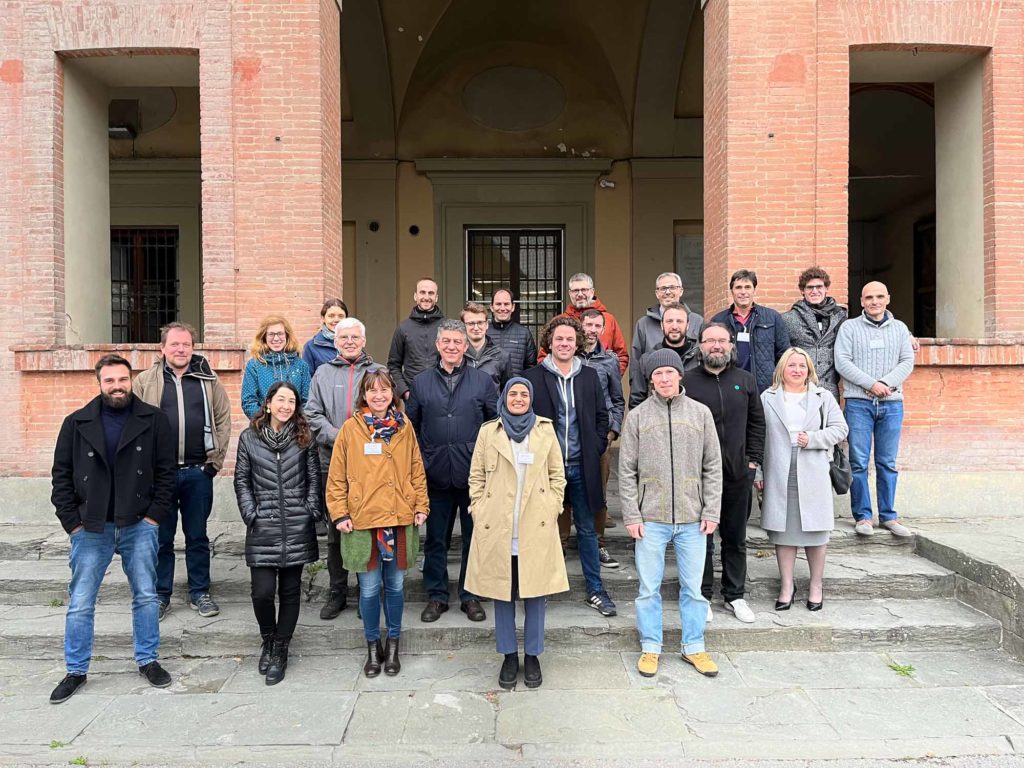The European LEGUMINOSE project has started working towards a more sustainable agriculture to ensure food security for the growing world population
The world population recently reached 8 billion people. By 2050, this number will further increase to 10 billion. To feed the raising global population, food production must increase by 60%. Current agriculture practices, however, are jeopardizing this goal: Intensive use of fertilizers and continuous monocropping destroy soils and natural ecosystems and produce high levels of greenhouse gases.
Making European agriculture more sustainable
Now, experts from ten countries have joined forces in the European project LEGUMINOSE to make European agricultural practices more sustainable yet productive. This will support the goals of the Farm to Fork Strategy of the European Green Deal as well as the European Biodiversity Strategy for 2030.
At the heart of the LEGUMINOSE project are legumes and cereals. For example, beans or lentils can be grown on the same field as wheat or barley without the crops competing for resources. This agricultural practice called intercropping efficiently utilizes space, water and nutrients to increase yield. Importantly, intercropping improves soil health and resilience to stresses such as heat waves and droughts, which are exacerbated by climate change.
Intercropping: A niche practise
Despite its environmental and economic benefits, intercropping is still a niche practice in the EU: Only 2% of European arable land is used for legume-cereal intercropping. One practical challenge is finding the right legume-cereal intercrop combination for the specific agro-ecological zone. To address this, LEGUMINOSE will establish 180 on-farm living labs throughout Europe (in Italy, Spain, Germany, Poland, Czech Republic, Denmark and the United Kingdom) and beyond (in Egypt and Pakistan). There, the researchers will work closely together with farmers to assess how intercropping can reduce pesticide and fertilizer use, improve soil health and enhance crop quality.
From niche to mainstream
“We want to explore the motivation of farmers for adopting intercropping practises and work together on solutions to overcome potential barriers,” said Shamina Imran Pathan, researcher at the University of Florence and one of the LEGUMINOSE coordinators, at the project’s kick-off meeting in Florence, Italy. The researchers will also develop forecasting models based on artificial intelligence and data collected from the on-farm living labs. The results will be embedded into an interactive, web-based tool to support farmers in selecting the optimal intercrops combination for their specific needs.
The ultimate goal of LEGUMINOSE is to provide farmers across the EU with accessible, actionable and science-based information for a profitable and sustainable agricultural transformation. The LEGUMINOSE consortium encompasses experts from 21 organisations, ranging from public and private research organisations, SMEs and enterprises, think tanks and non-profit organizations. The project started in November 2022 and will run for 48 months until October 2026. The international team plans to establish the first on-farm demonstrations as early as spring of 2023.
For more information, visit the LEGUMINOSE website and social media channels – Twitter and LinkedIn.
